
In mainland Europe, climbing is gaining ground as an alternative form of therapy for both physical and psychological injuries and illnesses. The health benefits of our sport are often touted within our small climbing community in the UK and the NHS has recognised its positive impact on mental health and physical well-being. However, compared to our continental neighbours, climbing therapy within clinical practice is in its infancy.
In Austria and Germany in particular, climbing as therapy is well-established, with educational courses on the topic, books and even hospitals boasting climbing facilities. Scientific research into the positive effect of climbing in the areas of physiotherapy, ergotherapy and psychotherapy is growing, to provide solid evidence for its use as an alternative therapy.
I spoke to Alexis Zajetz, psychotherapist and founder of the Institut für Therapeutisches Klettern (Institute of Therapeutic Climbing) based in Thalgau, Austria, to find out more about their work.
'Some patients wanted to use this kind of therapy because they didn't identify it as a therapy, they didn't have to sit around and talk - they just climbed.'
Climbing as therapy seems to be popular in Austria, we are only just starting to recognise its benefits in the UK. When and how did it start to be seen as a tool for helping physical and psychological issues in Austria?
The first two people who started it off were occupational therapists. One was Matthias Krick in Vorarlberg, Austria who began his work almost 25 years ago. It came about in an interesting way and completely by chance, because the room where he did his practice was being renovated. He had to move to a room where there was a bouldering wall and so he carried out his occupational therapy in this new space, but found that the children were only interested in the wall. He thought 'OK, if they want to climb, then I'll integrate climbing into my therapy!' To this day, he is still educating people in occupational therapy in Vorarlberg.
We started with our courses here at the Institute in 2005.
Can you explain the areas that your organisation work in - psychotherapy/working with children/ergotherapy/physiotherapy - what sort of issues do people come to you with in these areas?
In ergotherapy (the treatment of a disease or injury through appropriate physical effort) we work mostly with children and focus on something called sensory integration, a concept within ergotherapy. We work mostly with children with ADHD and those with learning disabilities. These courses are always full. If you start a course in a big city there are waiting lists since so many children are diagnosed with ADHD, perhaps even overdiagnosed. The next largest group within ergotherapy is rehabilitation for patients who have suffered from a stroke.
In physiotherapy there is a really wide range of patients, because we have the advantage in climbing that the whole body is working - no limb is neglected - you can train the abdominals, back, hands, arms and legs and so on, there is no specific focus. It's not only for orthopaedic patients though, some therapists are specialised in neurological programs and this is the area with the most scientific proof that climbing therapy works.
How can climbing help people with psychological issues?
You see videos of two years olds climbing on Youtube and it comes to them so naturally. I think this is the basis of the success of climbing, it's so natural for us - for example some neurological patients are unable to grab a cup, but they can hold themselves for a bit on a climbing wall. It's easier for them, or more natural, so this success on a climbing wall can be transferred to daily living. On the other hand, this natural foundation of climbing is very important for the psychological part because it has such a low threshold to start - you can take a 19 year old and a 100 year old and they will already know how to climb. This is really good for motivation and two seconds after starting you have your first sense of success by making just one step. Just to name one example, if you climb with someone who is depressed and thinks they're not able to do anything - you can prove to them that they are able to do something and what's more, they're able to do climbing, which many people think is impossible! That's just one example why climbing is so good.
What makes climbing different to other sports which might traditionally have been used for therapy?
You don't have to prepare for hours, you can go to a climbing wall and just start. The motivational element of climbing and this low threshold means you can easily be introduced. If you look at the grades, everyone can climb a grade 2 route. Another thing, this is not a scientific proof but I use it as an allegory in my courses: if you use swimming as rehab for fish, you won't be surprised that flying works best for birds! Climbing, that's where we are best. There are many animals that can run faster, but to do an 8a on a climbing wall is really difficult and I think this kind of movement is what we are built for. Our physical fitness is very interesting for physiotherapy of course - we train our arms exactly in the way that they are meant, it's not surprising that climbing can help a shoulder injury. This is what our arms can do, they can climb! For me, this is a motivational aspect as many people are keen on climbing so it's perfect, if someone is low on motivation to do anything I think climbing is one of the best possibilities to get them out of their beds.
'People who hadn't climbed before our therapy really think it's something very special. If they manage to climb it's not child's play, they really are proud of themselves because in their minds climbing is for really gifted, fit and mentally strong people and they think 'Oh wow, climbing, wow!''
I have lots of stories from psychiatric colleagues who had patients who were so depressed that they wouldn't leave their room, not even their bed. But the moment they learned that there is a climbing wall in the clinic, some patients wanted to use this kind of therapy because they didn't identify it as a therapy, they didn't have to sit around and talk - they just climbed. Another very important factor is that we can adjust the level of activity, which is really important because in some other sports you need to have some sort of average ability to start with, so it's really fun and climbing can be fun from the moment you start.
In my therapeautic group I have some people who are used to climbing, so I can pick another route and it works and I can adjust my therapy to every need. From a handicapped climber to an experienced climber I can put them on a route which really challenges them. People who hadn't climbed before our therapy really think it's something very special. If they manage to climb it's not child's play, they really are proud of themselves because in their minds climbing is for really gifted, fit and mentally strong people and they think 'oh wow, climbing, wow!'
What I think is special - maybe not unique, but special - is that you can use climbing in so many different ways. You can take bouldering with a one-move-wonder problem, someone alone challenging themselves with just one movement, up to multipitch routes which take hours. I don't use multipitch routes in my therapy currently, but in the wall I project a 30-move route with patients. It takes hours of preparation to do these 30 moves with all the technical aspects, but on the other hand I have just this one movement which I can do alone and still challenge myself. In my toolbox there are many tools, not just one possibility and I don't think it's always such a wide variety in other sports. With such a broad spectrum it's really practical for me as a therapist - I can switch between tools!
'There are more and more hospitals and clinics with climbing walls - it's unbelievable!'
How do people respond generally to using climbing as a form of therapy? Have many of your patients climbed previously, or are they new to the sport?
If you have 12 people in a group, there are maybe one or two who are used to climbing but in ten or twenty years' time this will probably change. You can guess that most people haven't tried it before, maybe in childhood on trees, so we can use this novelty factor to our advantage. As for the ways people react, this is what makes it so special. They react in so many ways and they transform their personalities - they project themselves outwards in climbing by the way that they move, think about the route and deal with success and failure. It's so interesting, you go climbing for two hours and you have so much to talk about.
I work on my own as a psychotherapist, so most of the time I work 1-1. But there are more and more hospitals and clinics with climbing walls - it's unbelievable! In Salzburg, for example, there is a surgery which has two climbing walls and there are even more clinics in Germany. I recently ran a course near Frankfurt with a psychiatry section and they booked me for three days as they wanted to learn how to use a climbing wall within a psychiatric context.
Do you take patients outdoor climbing too? Does this enhance the experience in any way?
Yes we do. It's really important to be an educated and experienced climber as the level of danger is much higher outside. It's a whole different thing having a bouldering group in a gym and then going outside. On our courses we always stress not to underestimate the situation outdoors. The routes are much more challenging and you need more creativity. People have much more respect for outdoor climbing, and for abseiling too. We also go tree climbing. One of our groups climbs trees regularly, they love climbing them on top-rope. Last weekend we ran a therapy course and two participants loved it so much they cried. Many individuals love being in nature, but you have to take into account that some people don't react positively to nature, some find it scary, dangerous - you have to be prepared. However, for some patients it's a really interesting experience to spend a whole day outside.
What are you doing to increase awareness of climbing as a means of therapy?
We have our homepage therapieklettern.com and astonishingly in the last two years we have had many emails from lots of countries around Europe - Switzerland, Denmark, Croatia. I also ran a course in Rome for psychotherapists. We are planning on having therapieklettern.com and climbingtherapy.com as an English language site which will make spreading the word much easier with articles and information. We also have a book which has become popular in Austria and Germany. We are just starting to have scientific proof and of course this will help create possibilities to establish climbing more widely in hospitals or in private practices. Our courses are fully booked for the rest of 2016, but I would also like to do courses in other countries!
Visit the Institute's website.
For scientific literature on climbing therapy, see this list.
Read a UKC article on climbing and mental health: Head Games
Links to British climbing therapy websites:
Donate to the Alpine Autism - Matterhorn 2016 Project, two young British autistic paraclimbers Jamie Owen & Georgia Pilkington hope to raise funds for an attempt on this technical 14,000ft peak and help fund further Autism At Height Projects.
- SKILLS: Top Tips for Learning to Sport Climb Outdoors 22 Apr
- INTERVIEW: Albert Ok - The Speed Climbing Coach with a Global Athlete Team 17 Apr
- SKILLS: Top 10 Tips for Making the Move from Indoor to Outdoor Bouldering 24 Jan
- ARTICLE: International Mountain Day 2023 - Mountains & Climate Science at COP28 11 Dec, 2023
- ARTICLE: Did Downclimbing Apes help Evolve our Ultra-Mobile Human Arms? 5 Dec, 2023
- ARTICLE: Dàna - Scotland's Wild Places: Scottish Climbing on the BBC 10 Nov, 2023
- INTERVIEW: Loki's Mischief: Leo Houlding on his Return to Mount Asgard 23 Oct, 2023
- INTERVIEW: BMC CEO Paul Davies on GB Climbing 24 Aug, 2023
- ARTICLE: Paris 2024 Olympic Games: Sport Climbing Qualification and Scoring Explainer 26 Jul, 2023
- INTERVIEW: Malcolm Bass on Life after Stroke 8 Jun, 2023



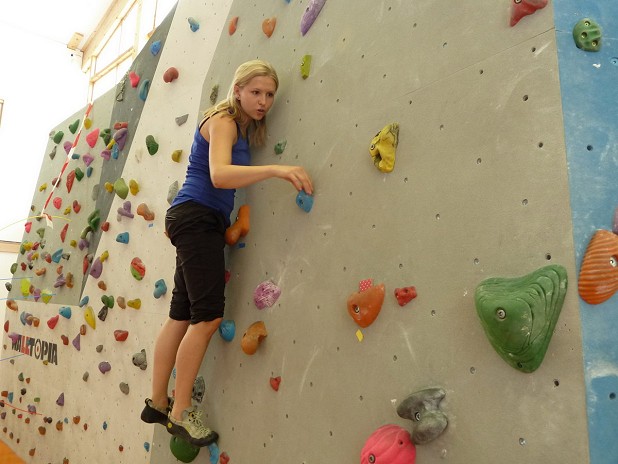
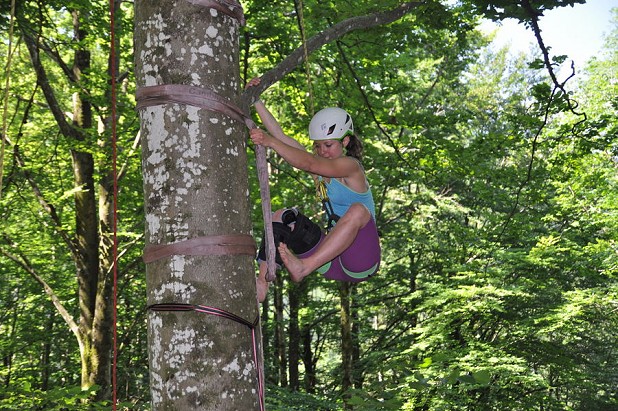
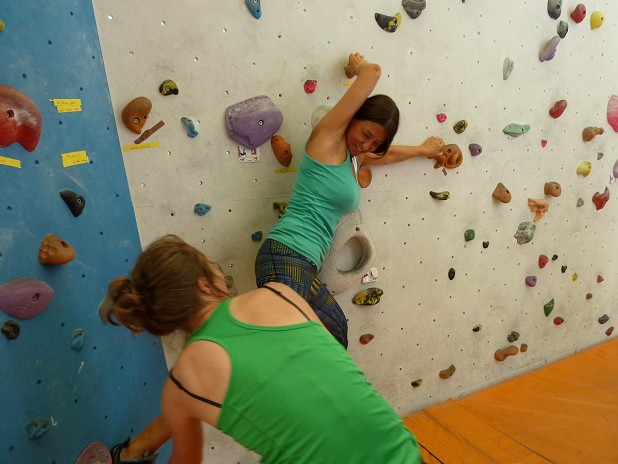
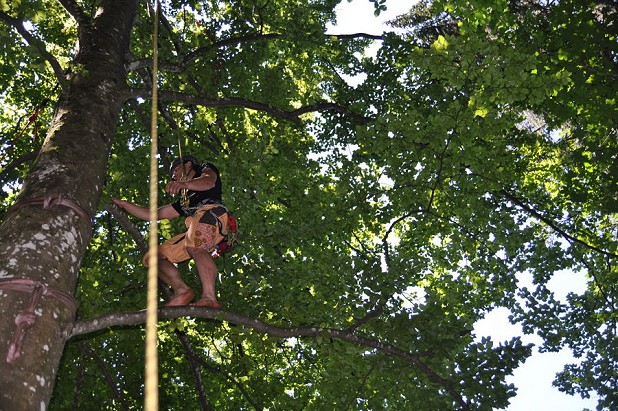




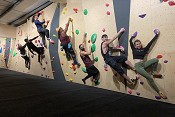






Comments